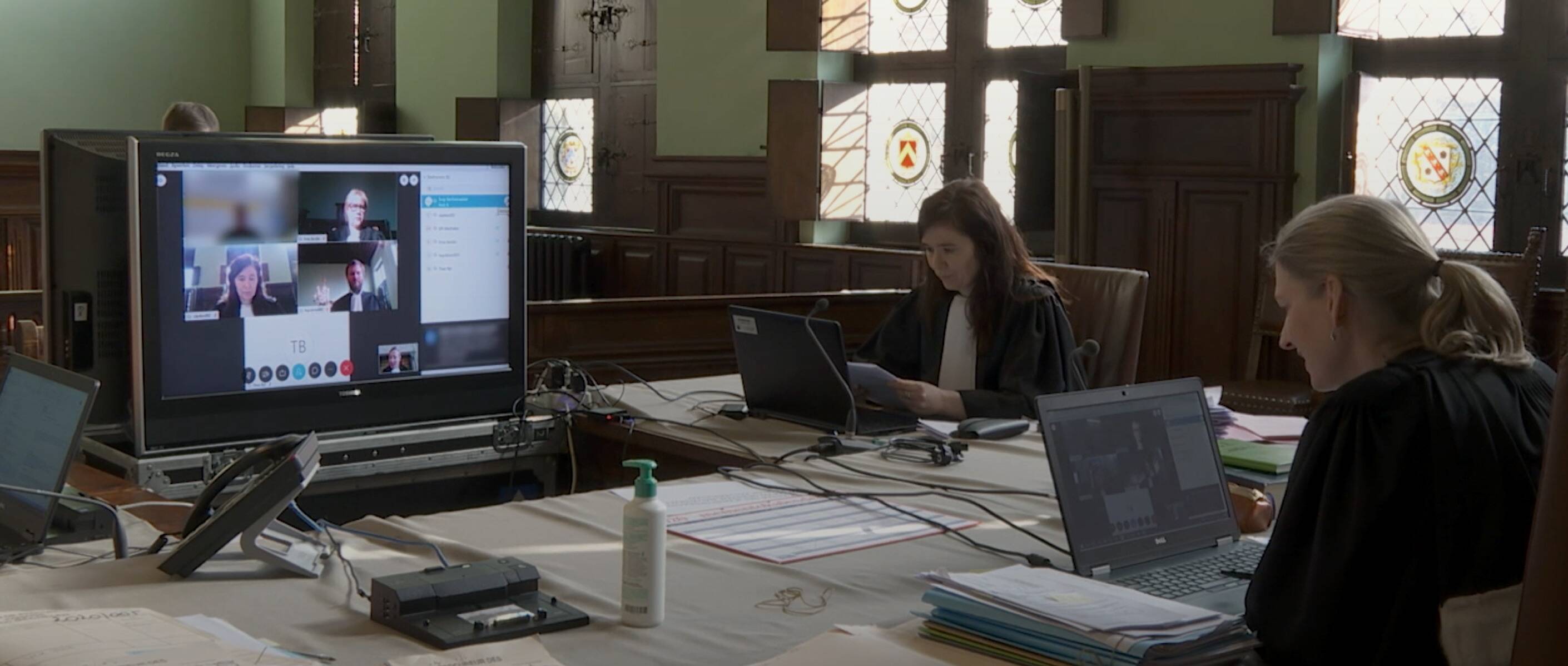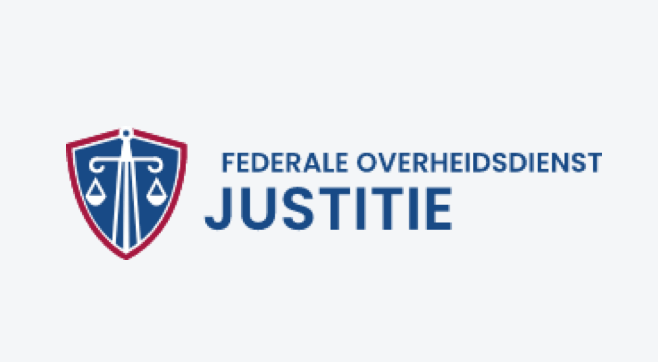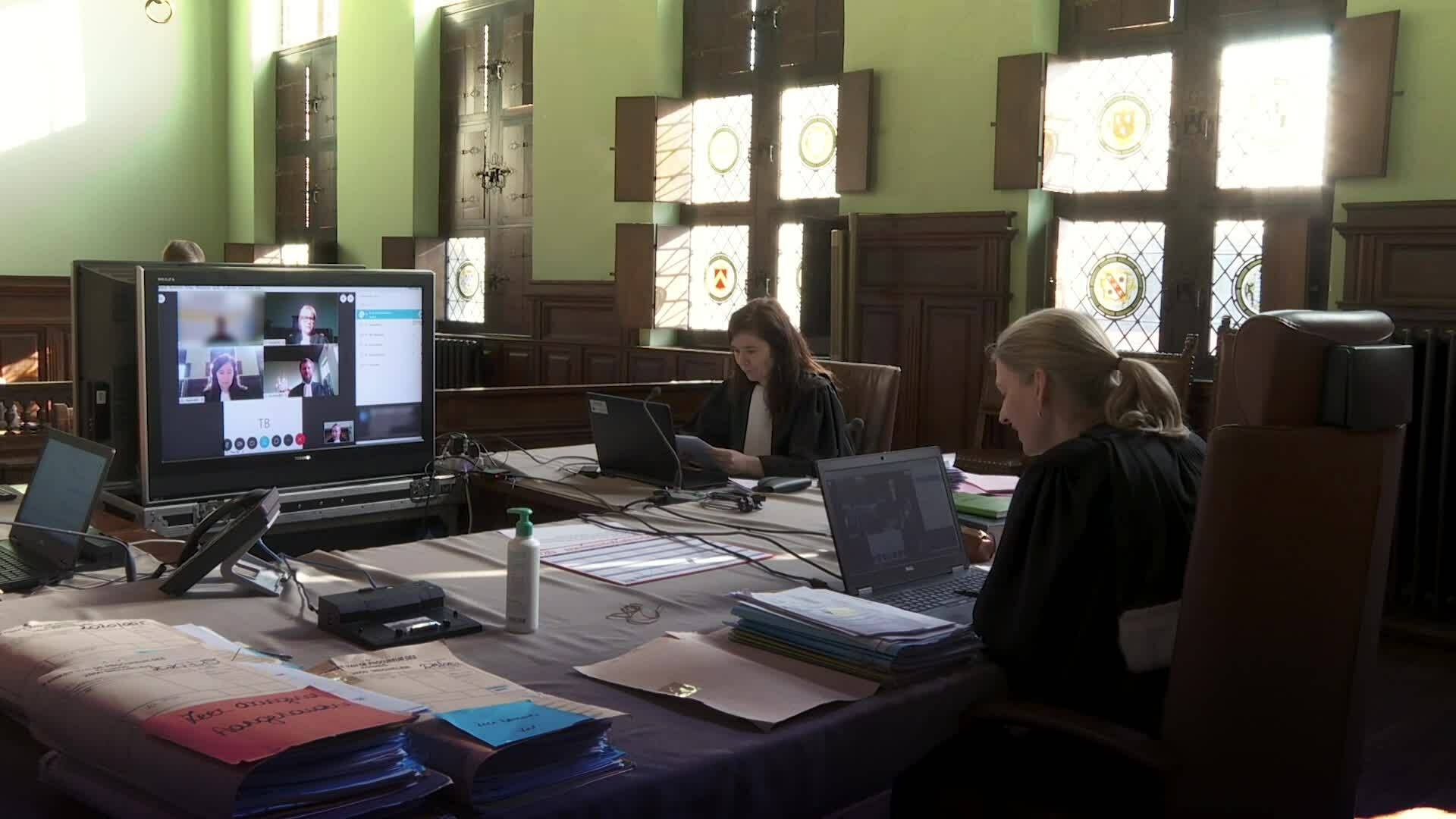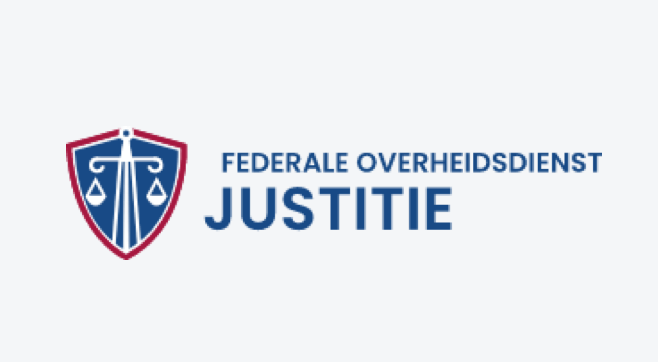

Corona accelerated digitalization at FPS Justice. The courts, for example, switched to video conferencing at a record pace and prisoners were given the tools to prepare for reintegration in society.
DIGITAL TRANSFORMATION
digitalization
Justice accelerates

“The lockdown elicited a huge demand for telework and video conferencing”, says Ivan Verborgh, ICT director at FPS Justice. The digital route offered a rapid solution, guaranteeing the service provided by the justice system. The reality of working from home also strengthened the role of the e-Deposit application, which lawyers and citizens could use to submit correspondence, conclusions and procedural documents in a specific file at the court. The ultimate goal is the digitalization of the entire chain: from the police, via the public prosecutor’s office, to the detention system and the courts.
Since the start of the pandemic, the use of video in court has made a huge difference. “Whenever it is not possible to be present physically, video offers a practical solution”, says Theo Byl, examining magistrate and chairman of the Court of First Instance in Mechelen.
The rollout of Cisco Webex Webex happened exceptionally fast. “We got the licenses on Friday”, said Theo Byl. “And by Monday we were already using it.” Which meant that the court could continue to handle both criminal and civil cases, even when the lockdown ruled out a move to the court.
“In criminal cases video sittings were positively received because the parties concerned were perfectly able to follow what was happening in the courtroom. In civil cases lawyers can plead the case via video link from their office.”
After the pandemic, the judiciary will continue to use video in court. The benefits are undeniable: among them the fact that hearings are more efficient, lawyers are not required to move around so much, and the security risk is lower because prisoners do not have to be transferred.
Video in court
ICT director at FPS Justice
Ivan Verborgh

Digitalization in the court in Mechelen
The corona crisis has accelerated the digitalization of prisons. “When prison visits had to stop because of lockdown, we developed an alternative with video-visits via Cisco Webex”, says Kristoff Hemelinckx, director of ICT in the detention service. Areas are set up in the prison for video-visits, with a dedicated laptop for this purpose. The laptop is also screened off so that the prisoner cannot touch it.
The idea behind the digitalization of the prisons goes beyond video. The revolution occurring in society needs to take place in prisons too – in a controlled and safe way. Those leaving prison at the end of their sentences have to be able to join our digital society. “That’s another reason why we are turning prisons into a digital environment”, said Kristoff Hemelinckx. “Eventually prisoners will be able to take initiative themselves from their cells: for example, following an online course or looking for a job.”
“Prisoners can also converse with their contacts at VDAB, OCMW or a center for mental well-being”, said Paul Dauwe, director of the prison in Hasselt. “With every positive experience, the interest in video grows.”
One thing is certain: there is no shortage of projects. VoIP will be available in the cells so that prisoners no longer have to make calls in the corridor; and digital television is also underway. In time, that digital device will evolve into a service platform, for purchasing products from the canteen, ordering a film or borrowing a book, among other things.
Prisons are going digital
The importance of video calls in prison
Vincent Van Quickenborne, Vice Prime Minister and Minister of Justice: “We want our justice system to be faster, more human and stronger. Digitization is not the goal itself, but the means to realize this. A sizeable investment of €100 million makes it possible to catch up. A new generation of magistrates is certainly willing to participate. Moreover, Corona turned out to be the game-changer and led to a switch in mindset at all areas of justice.”
Human justice system
Video calls from any location?
FOD Justitie
FPS Justice, the former Belgian Ministry of Justice, is the Belgian federal service that deals with the rule of law at all stages. This includes legislation, prevention, enforcement, punishment and victim care. About 25,000 people work for FPS Justice.


DIGITAL TRANSFORMATION
Justice accelerates
digitalization
Corona accelerated digitalization at FPS Justice. The courts, for example, switched to video conferencing at a record pace and prisoners were given the tools to prepare for reintegration in society.
“The lockdown elicited a huge demand for telework and video conferencing”, says Ivan Verborgh, ICT director at FPS Justice. The digital route offered a rapid solution, guaranteeing the service provided by the justice system. The reality of working from home also strengthened the role of the e-Deposit application, which lawyers and citizens could use to submit correspondence, conclusions and procedural documents in a specific file at the court. The ultimate goal is the digitalization of the entire chain: from the police, via the public prosecutor’s office, to the detention system and the courts.
Video in court
Since the start of the pandemic, the use of video in court has made a huge difference. “Whenever it is not possible to be present physically, video offers a practical solution”, says Theo Byl, examining magistrate and chairman of the Court of First Instance in Mechelen.
The rollout of Cisco Webex Webex happened exceptionally fast. “We got the licenses on Friday”, said Theo Byl. “And by Monday we were already using it.” Which meant that the court could continue to handle both criminal and civil cases, even when the lockdown ruled out a move to the court.
“In criminal cases video sittings were positively received because the parties concerned were perfectly able to follow what was happening in the courtroom. In civil cases lawyers can plead the case via video link from their office.”
After the pandemic, the judiciary will continue to use video in court. The benefits are undeniable: among them the fact that hearings are more efficient, lawyers are not required to move around so much, and the security risk is lower because prisoners do not have to be transferred.
ICT director at FPS Justice
Ivan Verborgh

Digitalization in the court in Mechelen
Prisons are going digital
The corona crisis has accelerated the digitalization of prisons. “When prison visits had to stop because of lockdown, we developed an alternative with video-visits via Cisco Webex”, says Kristoff Hemelinckx, director of ICT in the detention service. Areas are set up in the prison for video-visits, with a dedicated laptop for this purpose. The laptop is also screened off so that the prisoner cannot touch it.
The idea behind the digitalization of the prisons goes beyond video. The revolution occurring in society needs to take place in prisons too – in a controlled and safe way. Those leaving prison at the end of their sentences have to be able to join our digital society. “That’s another reason why we are turning prisons into a digital environment”, said Kristoff Hemelinckx. “Eventually prisoners will be able to take initiative themselves from their cells: for example, following an online course or looking for a job.”
The importance of video calls in prison
“Prisoners can also converse with their contacts at VDAB, OCMW or a center for mental well-being”, said Paul Dauwe, director of the prison in Hasselt. “With every positive experience, the interest in video grows.”
One thing is certain: there is no shortage of projects. VoIP will be available in the cells so that prisoners no longer have to make calls in the corridor; and digital television is also underway. In time, that digital device will evolve into a service platform, for purchasing products from the canteen, ordering a film or borrowing a book, among other things.
Human justice system
Vincent Van Quickenborne, Vice Prime Minister and Minister of Justice: “We want our justice system to be faster, more human and stronger. Digitization is not the goal itself, but the means to realize this. A sizeable investment of €100 million makes it possible to catch up. A new generation of magistrates is certainly willing to participate. Moreover, Corona turned out to be the game-changer and led to a switch in mindset at all areas of justice.”
FOD Justitie
FPS Justice, the former Belgian Ministry of Justice, is the Belgian federal service that deals with the rule of law at all stages. This includes legislation, prevention, enforcement, punishment and victim care. About 25,000 people work for FPS Justice.

Video calls from any location?